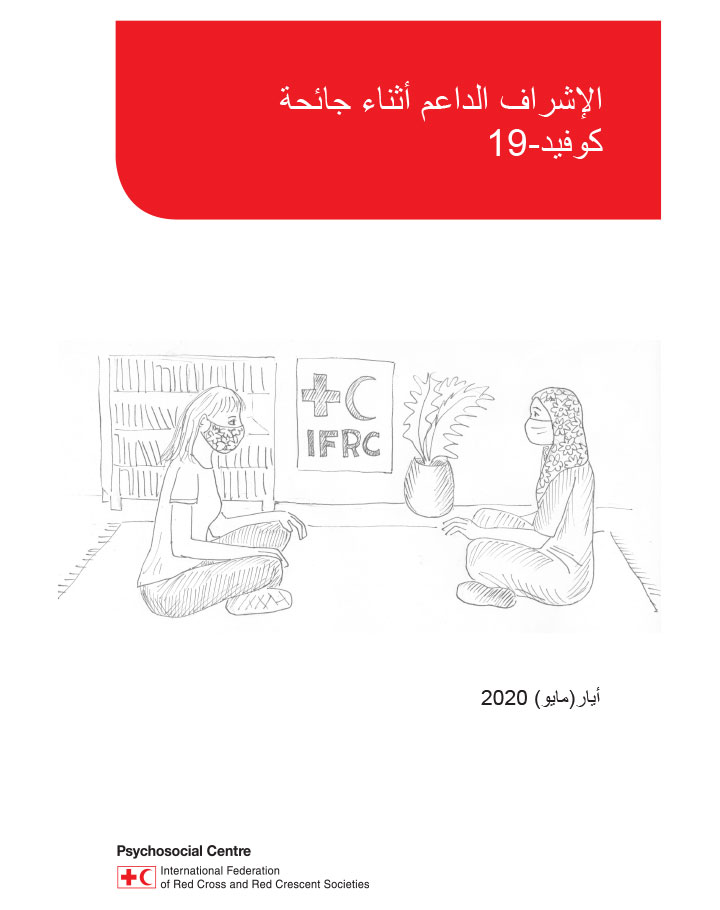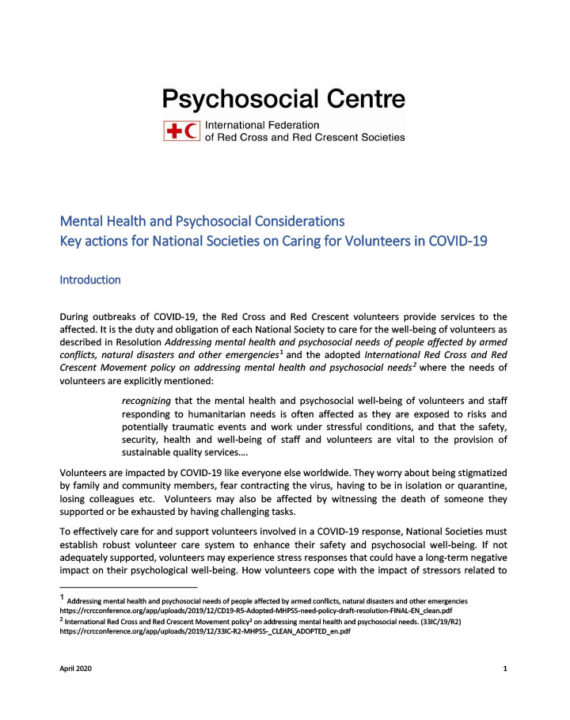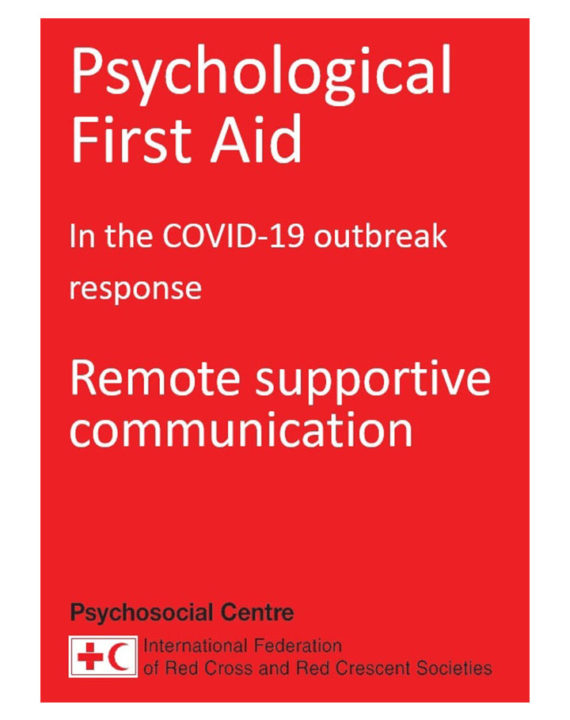Supportive supervision during COVID-19 is aimed at Red Cross Red Crescent National Societies, providing guidance in offering supportive supervision to volunteers during COVID-19. Parts of Supportive supervision during COVID-19 are drawn from a joint research project between the IFRC PS Centre and Trinity College Dublin, called Supervision: The Missing Link. This project aims to provide guidance and tools on mental health and psychosocial support (MHPSS) supervision in humanitarian contexts.
National Societies must have a robust volunteer care system in place to ensure the safety and psychosocial well-being of their volunteers. This includes providing supportive supervision. Having a strong volunteer care system has two important functions. First, it means that National Societies are able to care for and support the volunteers involved in a COVID-19 response effectively. Second, it also ensures that high quality mental health and psychosocial support (MHPSS) is being provided to the community.






